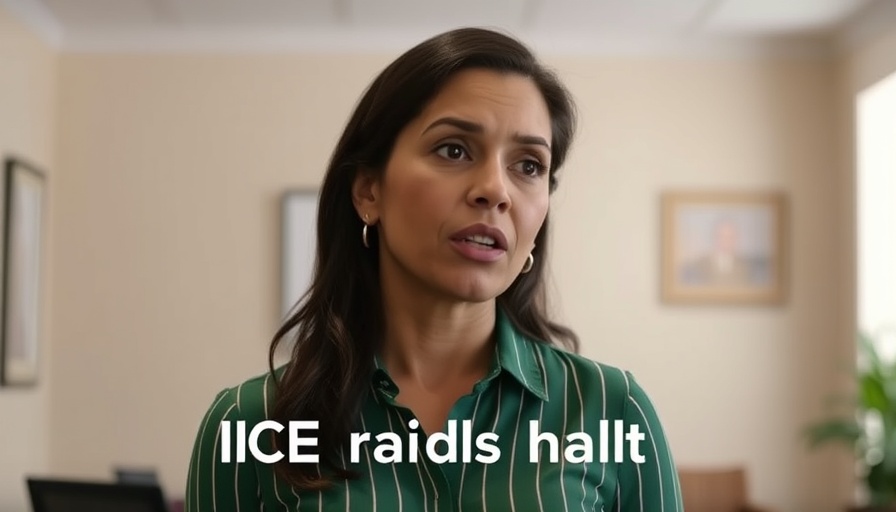
The Recent Shift in ICE Raids: A New Direction
The landscape of immigration enforcement in the United States is shifting. Recently, the U.S. Immigration and Customs Enforcement (ICE) has been directed to pause worksite investigations targeted at sectors like agriculture, restaurants, and hotels. This decision, communicated via an internal email from a senior ICE official, marks a significant change in how the agency approaches undocumented workers, particularly those who are noncriminal collaterals—individuals without criminal records caught in the crossfire of enforcement policies.
Understanding the Policy Shift
Effective immediately, agents are instructed to halt all investigations involving these workplaces unless they pertain to serious criminal activities such as human trafficking, drug smuggling, and related offenses. This shift is viewed as a response to criticisms of ICE's previous tactics that often disproportionately affected vulnerable individuals, particularly women and children, who were simply seeking better lives.
Implications for Immigrant Communities
The implications of this pause are significant for immigrant communities that fear raids and arrests. This tactical pivot could lead to an improved climate for documentation, allowing workers to feel safer reporting workplace violations or seeking legal help when needed. However, the new directives may not suffice for those still deeply intimidated by ICE operations. According to homeland security spokeswoman Trisha McLain, the focus remains on removing “the worst of the worst,” which could still foster anxiety among undocumented residents.
Challenges Ahead for Immigration Attorneys
This new directive presents both challenges and opportunities for immigration attorneys. As they navigate the evolving landscape of immigration policy, they will need to adapt their strategies to best serve their clients. The shift in ICE's approach could result in a need for increased advocacy, especially for those who remain in a legal gray area or face threats under the new guidelines.
Looking Forward: What Can Change?
This temporary hold on worksite enforcement operations suggests a burgeoning recognition of the collateral damage caused by stringent immigration policies. However, the question remains: is this enough? Advocates argue for a comprehensive overhaul of immigration laws that ensure protection and dignity for all residents, regardless of their legal status. As these conversations intensify, it becomes imperative for immigration attorneys to actively participate in shaping policies that prioritize human rights over punitive measures.
In examining this recent directive from ICE, we find it crucial to ponder the future of immigrant rights in America. Could this represent a turning point where empathy takes precedence over enforcement? Immigration attorneys and advocates must leverage this moment to push for meaningful reforms that protect the rights of all individuals, ensuring no one is left vulnerable amid policy changes.
 Add Row
Add Row  Add
Add 

 Add Row
Add Row  Add Element
Add Element 




Write A Comment